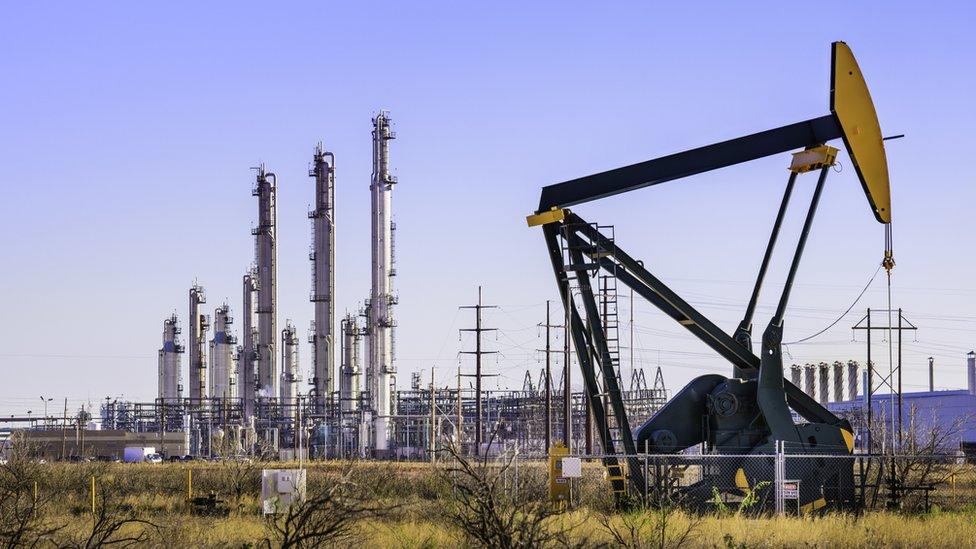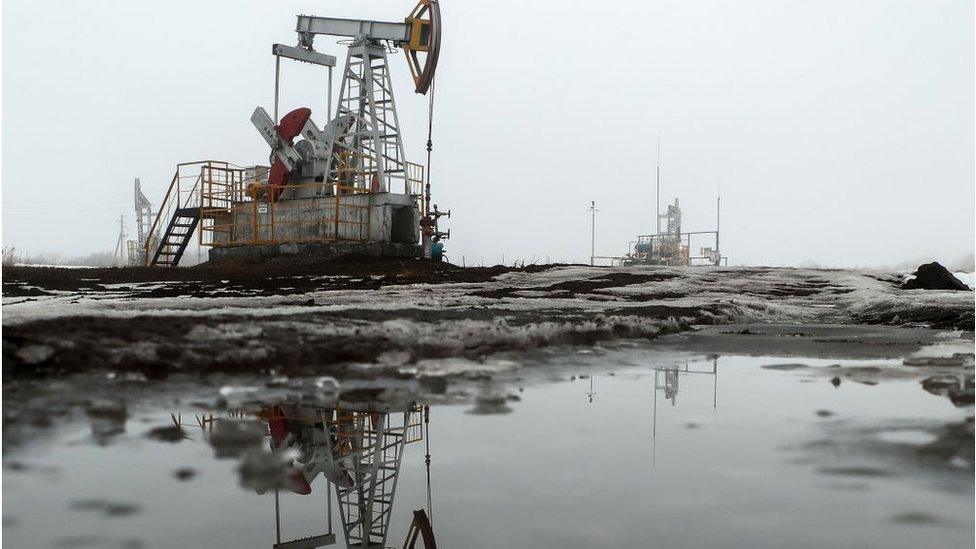Markets rise after lockdowns prompt oil price plunge
- Published

Markets have turned higher as investor optimism rises ahead of the US presidential election on Tuesday.
The three main share indexes in the US all gained ground on Monday, reversing course after sharp falls last week.
Oil prices also turned positive in US trading hours, after earlier hitting a five-month low following fresh virus-induced lockdowns.
The falls followed countries including the UK, France and Germany tightening restrictions on social activity.
The news hit financial markets, worried that the new lockdown measures would further dent economic growth and cause demand for oil to slump.
In Asia trading hours, the price of Brent crude fell to a low of $35.74 per barrel, a level not seen since late May.
But it later recovered, rising more than 3%, helped by strong manufacturing data.
The price of US crude oil was also hit hard, falling as much as 7% on Monday to a low of $33.64 a barrel before also rising more than 3%.
But the price of Brent, the main benchmark for oil prices, remains down 45% from the start of the year.
The virus-induced slump has weighed heavily on energy companies, with BP and Shell among those announcing thousands of job cuts this year.
BP plans to cut 10,000 jobs after a slump in demand while Royal Dutch Shell has said it expects to cut 7,000 to 9,000 jobs. Exxon Mobil last week said it planned to cut 14,000 jobs - or about 15% of its global workforce.
Election fears
The rise in oil prices joined a broad market rally, with the Dow Jones Industrial Average closing 1.6% higher. The S&P 500 - which suffered its biggest weekly loss since March last week - rose 1.2% while the Nasdaq gained 0.4%.
Shares in Europe and the UK also climbed.
Concerns that the results of the US presidential election would not be known for weeks have weighed on markets.
But hope that the US will avoid a messy and contested election outcome has risen among investors, as polls show challenger Joe Biden maintaining his lead over President Donald Trump in key states on the eve of election day.
Investors are also optimistic that the conclusion of the campaign will return attention to the debate over economic stimulus, ultimately pushing Washington to advance spending plans to help the US economy recover from the pandemic downturn.
"Whichever way you look at it, this coming week will be huge for US and global markets," said Simon Ballard, chief economist at First Abu Dhabi Bank.
"We see the potential for a sharp rise in volatility around these events and all in the context of a still deteriorating Covid-19 situation across much of the US, Europe and elsewhere."

China hopes
China remains the most upbeat market for economic growth this year.
The world's top crude oil importer said on Monday it would raise its quota for 2021 by 20% for non-state owned companies.
This came after activity in China's factory sector accelerated at the fastest pace in nearly a decade in October as domestic demand surged.
This was according to the Caixin/Markit Manufacturing Purchasing Managers' Index (PMI) - a private survey which focuses on smaller to medium-sized companies.
Last month, China continued its recovery from the pandemic with strong economic growth during the third quarter, according to its official figures.
The world's second-biggest economy reported growth of 4.9% between July and September, compared to the same quarter last year.